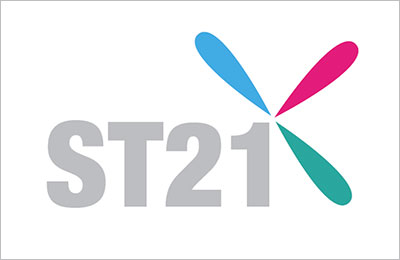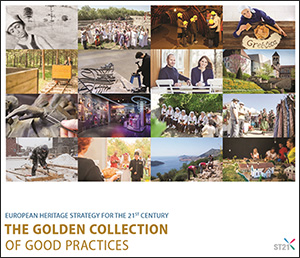Location of the initiative:

Relation to Strategy 21 Recommendations:
S5 encourage and assess citizen participation practices and procedures
Time span of the initiative:
Start Date: 2016/ End Date: On-going
Motivation / Methodology
The National Heritage Board of Poland, along with Riksantikvaren (Norway) has implemented an EEA Grants and Norway Grants project on local heritage management with participation of Polish and Norwegian municipalities (small towns & villages). The aim was to recognize the level of knowledge and awareness of heritage values and its use in social and economic development in these localities. Workshops for local stakeholders and development of a heritage management comprehensive manual was among the project goals. It allowed the NHB to develop a method for local heritage management trainings. Management of heritage is understood as interdisciplinary area: trainings are covered by experts on law, spatial planning, economic development, local strategies designing and implementing, creative and regional products, reuse of monuments (new functions), participation in decision making, education & promotion.
Support for local stakeholders (local governments, leaders, NGOs) is also a part of Polish central policy developed in strategic document „State Programme of Heritage Protection and Care” (implemented every four years). This program identifies needs and goals on central level and design appropriate activities. Trainings on local heritage management were part of these activities designed to be implemented in Poland.
In the years 2016-2018, Heritage trainings were conducted for local groups of several neighbouring municipalities and/or counties. It is open to everybody working with local heritage: municipality officers, leaders, teachers, museums, traditional dance groups, clergy, local business. The 2-day programme focuses on the expert beforehand analysis of local heritage management (strategic documents, level of heritage use in tourism, education and other economy branches) and adaptation of the training program to the local needs. The trainings also include a participatory module (workshops based on a local example provided to experts by municipality before the training and Q&A). Every participant received a set of books and training materials. Experts were also accessible by e-mail for further consultation if needed. Since the 2016 NHB has trained over 500 persons and 150 municipalities (villages, towns, cities).
Obstacles / Barriers
A basic problem we met is lack of time and sourcing experts available for delivering the initiative. Apart NHB employees we asked external experts to join the initiative. 3-4 days of absence from their regular work every month, and all year long, was demanding. That is why we are planning to change the formula for the forthcoming years and to organize trainings on regional level, without limiting access to such a training. The regional level won’t be as bespoke as local but will allow a top-down knowledge transfer.
Another problem is awareness among local stakeholders (mostly municipality officials) of a need to improve knowledge in the heritage management field. We have observed the phenomenon between participants: after the trainings they have commented, that they had no idea they needed one. While inviting municipalities for a training we often had to explain that it is suitable not only for heritage protection officers, but also (if not mostly), for officers responsible for economic development, spatial planning, promotion and so on.
Change / Impact
Heritage management and use for local development is a process taking years, but we already have information on initiatives and approach changes to the use of heritage in a sustainable way activating local entrepreneurship. Some of the participants are in contact with use and ask for assistance in their initiatives, or just let us know what they do.
Formally, we had an excellent rate of the evaluation (we’ve asked participants to assess the trainings). We have also observed the change in approach towards what is locally possible to initiate and towards local cooperation between stakeholders.
Lessons learned
The most striking insight was that sometimes municipalities have almost all the knowledge they need – but it is widely dispersed. Officers, decision makers and councillors are overwhelmed with work and do not find time to discuss and cooperate. For example: heritage is present in spatial planning in promotion and in economic development, but as these areas are often covered by separate municipalities departments, they do not interact with each other. Heritage issues are therefore not understood nor treated in an integrated way.
Reassuring is however that they are willing to learn and to change. Once participants got the idea of heritage as a strong development potential, they were forthcoming with ideas for their localities.
Participants were unsure about how to persuade inhabitants, that a monument can be as important for their future and wellbeing, as new transport infrastructure. A lack of comprehensive management is still an issue.
Online resources
- https://nid.pl/pl/ Institute website
- http://samorzad.nid.pl/ Comprehensive database on heritage management (law, regulations, spatial planning, community competences, procedures, step-by-step for implementation, good practices, education/ promo methods etc.)
Contact information
Chabiera, Aleksandra
National Heritage Board of Poland
[email protected]
+ 48 22 55 15 679
Source of financing
Public financing





